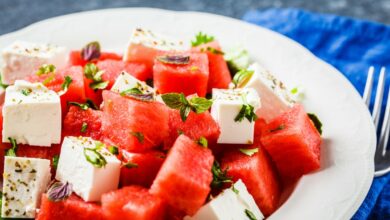
Breakfast is such an important part of your everyday routine because it sets the pace for the rest of the day! Setting aside some time to prepare well-balanced breakfasts full of tasty, nutritious, organic ingredients will help you control your time without sacrificing your health. Here are a few easy fun and healthy breakfast ideas that are healthy for the entire family.
Eggs
Read More »Grits
There are a plethora of health benefits of corn grits, delicious hot cereal made from corn, which is also the main ingredient in beer-soaked bread. It has a very low Glycemic Index (GI) and contains no high-glycemic carbohydrates, no refined starches or sugars, no trans-fats, and no calories. Corn grits may also help protect against degenerative eye diseases, boost energy levels and promote digestive health by naturally promoting better digestion.
In addition to boosting energy, consuming grits can also benefit the nervous system, improve concentration, and help strengthen immunity. One serving a day is the equivalent of about sixty to eighty milligrams of calcium and magnesium, which is about half of what you would find in a glass of milk.
Grits are rich in potassium and magnesium, which are two nutrients vital to eye health. High blood pressure and eye problems such as cataracts are reduced when the amount of these nutrients in the body is maintained at a proper level. Grits may help protect against degenerative eye diseases, as well as helping with digestion. Studies have shown that eating a diet of corn grits or a meal replacement shake containing these ingredients every day can reduce your chances of developing cataracts. Furthermore, studies suggest that women who ate a diet rich in magnesium and potassium had fewer signs of stress, depression, and fatigue as they aged.
Yogurt
The health benefits of yogurt consist of probiotics, acidophilus, healthy bacteria, selenium, and sodium lactate. It’s also considered the most “healthy” of all sour dairy foods as it supplies important nutrients in various forms to the intestines. It also contains no fat, cholesterol, or lactose and can be digested easily by lactating mothers, babies, and people with lactose intolerance. It is widely available in most health food stores and supermarkets.
Probiotics are beneficial bacteria that live in the digestive system. They provide good bacteria to help digest lactose in the stomach by producing short-chain fatty acids (SCFA) that make it easier to break down lactose into milk sugars. Probiotic yogurt has also been shown to have positive effects on the immune system, lowering the risk of infection and diarrhea and reducing the risk of the common cold. Some bacteria types are friendly to the digestive system, but not to the body’s bacteria that produce yogurt. Yogurt with probiotics, such as Acidophilus and Lactobacillus, help keep the bad bacteria down by producing hydrogen peroxide, a natural disinfectant.
Another of the health benefits of yogurt is that it contains the same amount of calcium as non-dairy products, yet it doesn’t have calories, salt, fats, or unnecessary additives.
Smoothies
Breakfast smoothies have been around for a while and they’ve only recently gained popularity as a healthy eating option. Because they are easy to prepare, many people are including them in their daily meals. Even if you’re not planning on eating them every day, you can still incorporate them into your diet. Here are some of the health benefits of a smoothie:
Many breakfast smoothies include smoothies with a variety of fruits. Since most recipes call for at least a few fruits, this is a great way to ensure you’re getting all the nutrients you need each morning. Most recipes also require raw fruits and vegetables as the main ingredients. Raw fruits and vegetables are highly important for good health.
You can also incorporate yogurt into your diet as one of the main ingredients. Many breakfast smoothies include yogurt as an ingredient, which helps make them more tasty and nutritious. Yogurt also helps to increase your daily calcium intake. Since eating yogurt regularly can improve your health and your appetite, it makes sense to include it in your diet when preparing your morning meals. Is to find one that suits your taste and your lifestyle. If you’re a vegetarian or vegan, you will want to find a brand that does not use any animal products or sugar. If you like coffee or other sugary drinks, you might want to consider using Greek yogurt or other non-sugar options.
Fruit for Breakfast
There are actually studies out there that show how eating certain fruits for breakfast can benefit your cognitive function and promote healthy weight loss. For example berries, berries are rich in nutrition and high in nutrients. Berries have been shown in studies to reduce calorie consumption and help in weight loss. Grapefruits have a low-calorie count, a high water content, and high fiber content. According to research, they can help with weight loss by lowering calorie intake and body fat. Kiwis are rich in fiber, like pectin, which can help with weight loss. This green sour fruit also acts as a natural laxative, assisting in the temporary reduction of water weight.
Chia Seeds
Chia seeds are small brown seeds, about the size of rice, that have recently gained a lot of popularity as a trendy superfood. These tiny seeds were discovered in the 1990s by a Mayan farmer who noticed that his dog had a far greater appetite than usual even though he ate only half the usual amount of food. Later tests showed that this was due to the seeds increasing the amount of insulin in the body, which counteracts hunger. And since then, chia seeds have been heralded for their weight loss benefits and even their healing properties. Now you too can lose weight by eating these little-known superfoods!
Chia seeds are rich in protein and fiber, and chia seeds have been proven to help with weight loss, appetite suppression, and blood sugar stabilization. Adding chia seeds to tea, parfait, smoothies, cereal, or oats makes a healthy nutritional breakfast.
Oatmeal
Oatmeal is naturally gluten-free, so there isn’t any refined form of oatmeal. Instead, oatmeal is loaded with numerous health benefits: naturally lowering cholesterol levels and helping to prevent heart disease. Some oatmeal also contains “good” cholesterol, which fights against LDL or bad cholesterol in the bloodstream.
In addition to reducing cholesterol and increasing dietary fiber, oatmeal also contains soluble fiber that binds with cholesterol. Therefore, it can help reduce the risk of heart disease and constipation, because it slows down the absorption of dietary fat. In addition to helping reduce heart disease and constipation, oatmeal also contains magnesium, which helps alleviate gas and abdominal discomfort. Furthermore, oatmeal is full of iron, so taking oatmeal before meals can help increase satiety. Satiety is defined as the amount of energy one requires before one feels hungry, so the higher amounts of dietary fiber and iron that oatmeal contains the better for you. Because it is full of dietary fiber, oatmeal helps people who want to lose weight to eat less and feel full.
Conclusion
When it comes to weight loss, starting the day on the right foot and with the right diet will make all the difference. Eating nutritious breakfast foods will help you control your cravings and stay on track with your weight loss goals.





